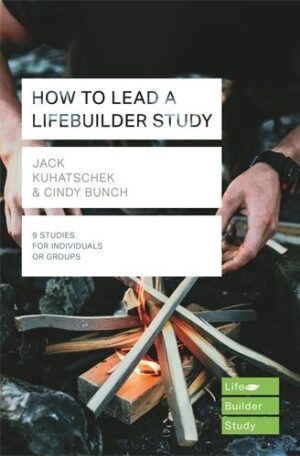



The ultimate purpose of Bible study is not simply to educate us but to transform us. In Romans 12:2 Paul gives us this exhortation: “Do not conform any longer to the pattern of this world, but be transformed by the renewing of your mind.” As we renew our minds through the study of Scripture, the Holy Spirit gradually transforms us into the image of Jesus Christ.
To properly apply the Scriptures, we must remember the nature of Scripture. Almost every book of the Bible was written to address specific problems, needs and questions of the people living at that time. For example, the believers in Corinth had problems of division, immorality, marriage, food sacrificed to idols, spiritual gifts and lawsuits among believers. Paul wrote 1 Corinthians to answer their specific questions. We face many of these same problems and questions today. It is still possible to take another believer to court, and we still have questions about marriage. In fact there are hundreds of ways in which our problems and needs correspond to those faced by the people in the Bible. This is natural since we share a common humanity. And it leads us to the first principle of application.
Rule #1: Whenever our situation corresponds to that faced by the original readers, God’s Word to us is exactly the same as it was to them.
But there are also situations from their day which do not have an exact counterpart today. This, too, is to be expected because of the differences between modern and biblical culture. For example, almost no one in our society sacrifices food to idols. In such cases we should follow the second principle of application.
Rule #2: Whenever our situation does not correspond to that faced by the original readers, we should look for the principle underlying God’s Word to them. We can then apply that principle to comparable situations today.
What was the principle underlying Paul’s words about food sacrificed to idols? He was concerned that the Corinthians not do anything that would lead someone with a weak conscience to sin: “Therefore, if what I eat causes my brother to fall into sin, I will never eat meat again, so that I will not cause him to fall” (1 Cor 8:13). This principle might be applicable to many situations today, such as whether a Christian should drink alcoholic beverages around someone who is a former alcoholic—or drink at all.
FLOWING INTO APPLICATION In what ways do people today fail to see the light shining through the darkness? What do you find significant about the fact that the Word became flesh (v. 4)? What are some ways that we see God’s glory? How can we, like John (v. 15), declare Christ’s glory to others? How is the law a precursor to Jesus, the Word?
Bible study without application is an intellectual exercise that fails to call us to accountability and growth. LifeBuilders exercise both the mind and the spirit. Accurate application builds on careful observation and interpretation, so we generally put the first application question in at about question 5 or 6. In our sample study, question 6 is the first application question in a series.
Question 7 calls for interpretation, and it is then followed by two more application questions. Question 10 is another interpretation question. So it’s not a structured kind of study in which we do all the observation, all the interpretation and then all the application. There’s an interplay of all these dynamics flowing through the study as the questions surface naturally from the text. Sometimes there are combination questions that call you to do a bit of observation and then make an application and so on.
Once you understand these principles of application, you can think of unlimited ways in which God’s Word applies today. You can ask such questions as:
A summary question helps you look back though the whole text to draw together the main points of a passage or book. The summary question could be an observation or interpretation question, but not every study has one of these—especially when there’s a lot of text to cover. Sometimes it’s an application question that draws out the main themes of the text. In the sample study from God’s Word question 11 is an interpretation question that calls for a review of the text. After gathering responses to this question, it would also be appropriate for you as the leader to take a minute to summarize the highlights of your discussion. Then ask the final application question.
This question will make the study personal and will generally call for a personal commitment in response to the study. It often ties into the prayer suggestion, which you can use in closing your time together.
WRAPPING UP We read in four different verses that the Word was with God. Why is this point emphasized? How can regarding Scripture as God’s living Word impact the way you handle it?